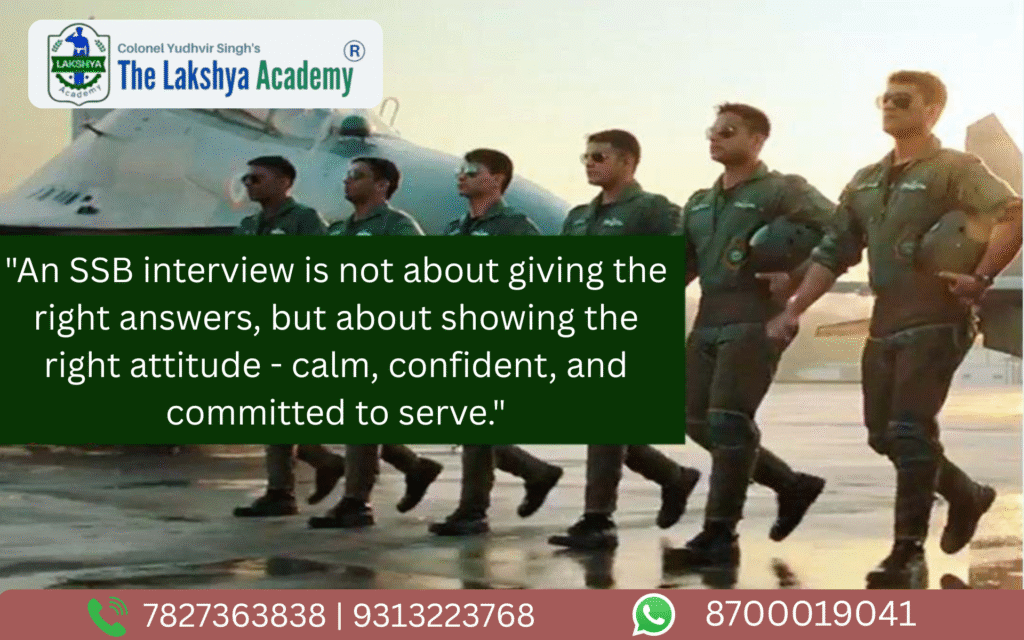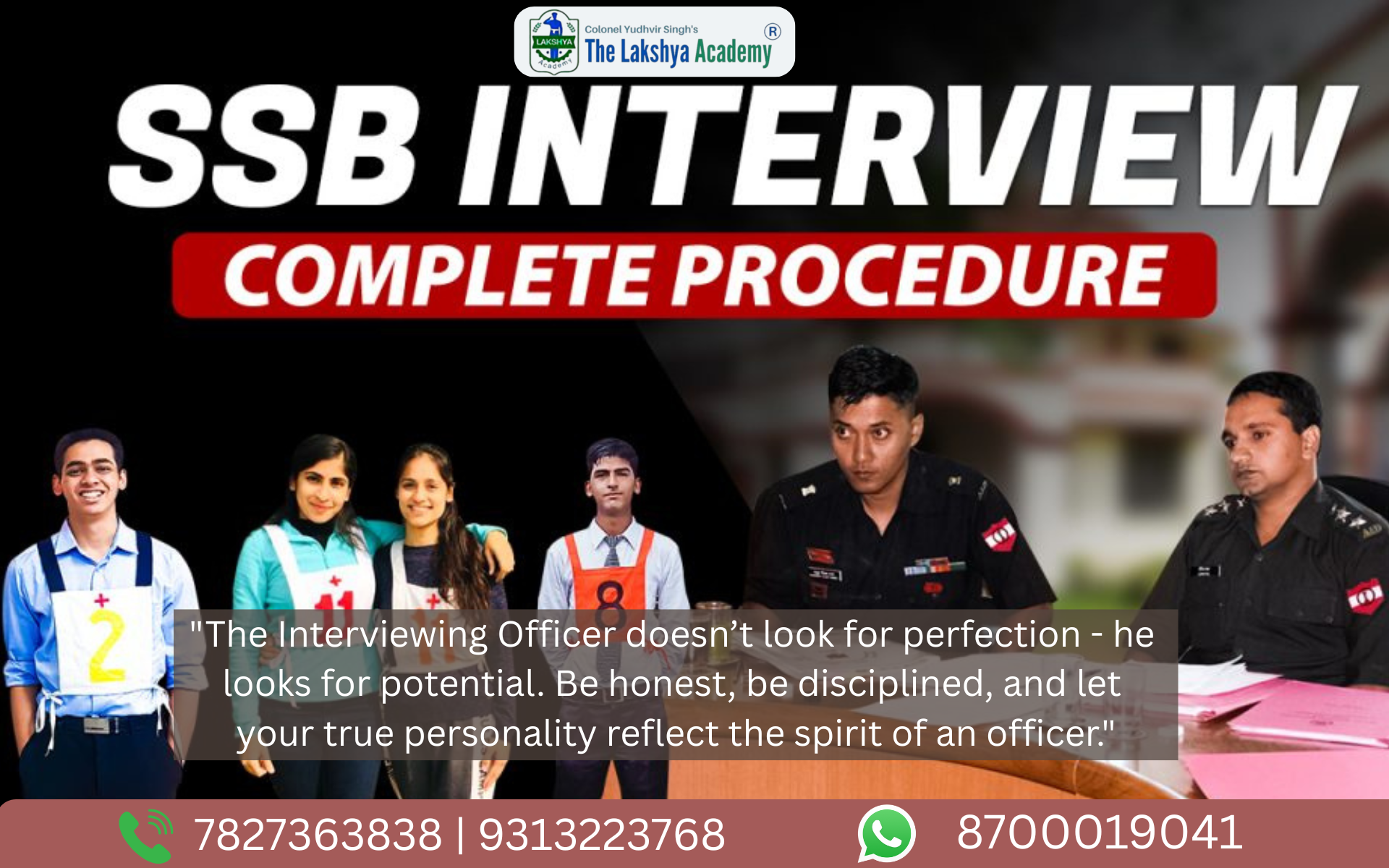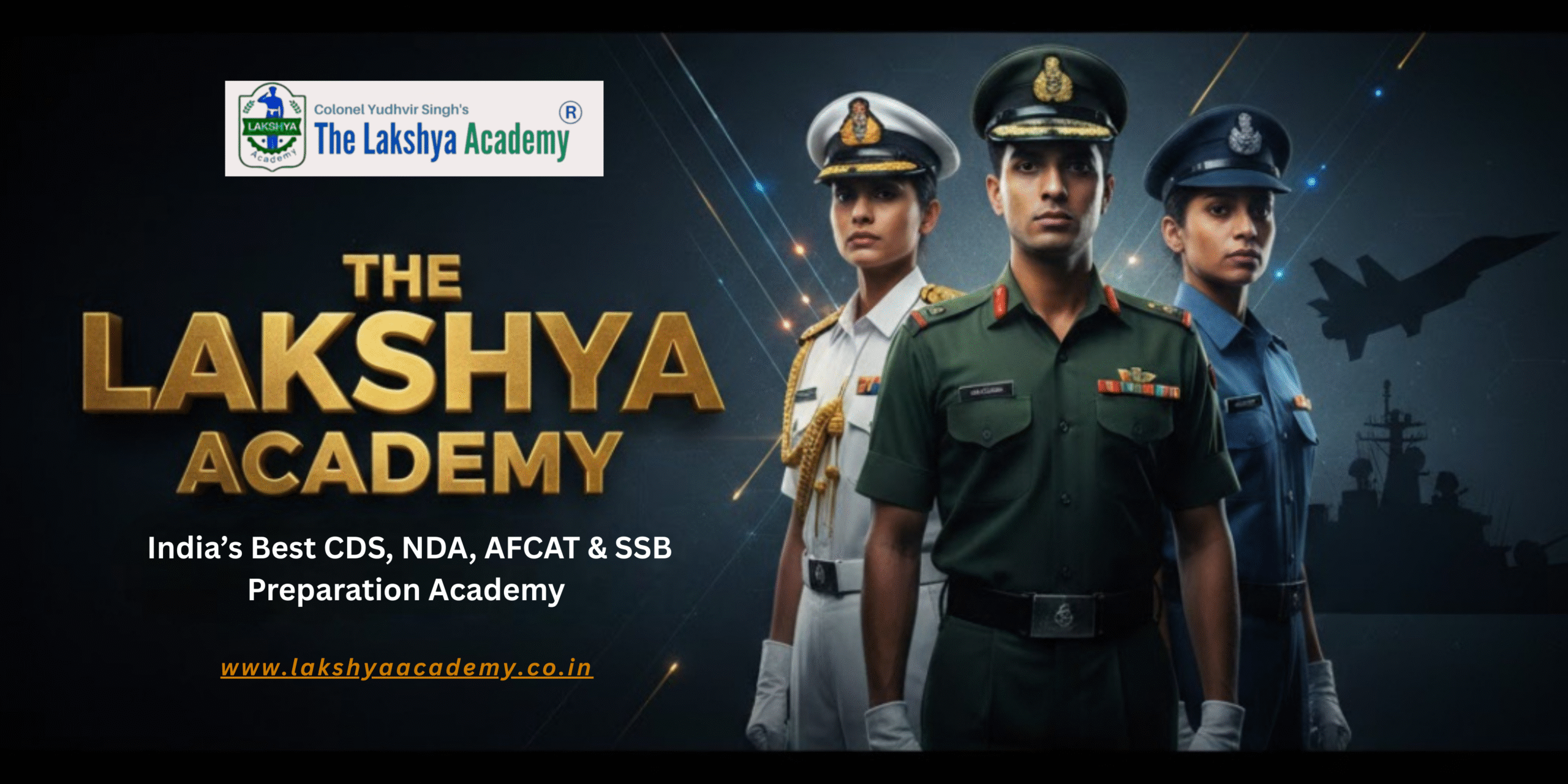Learn what an Interviewing Officer truly looks for during the SSB Interview – detailed breakdown of OLQs, traits, and expert tips to help you get recommended in your next attempt.
What an Interviewing Officer Looks for During SSB
The SSB (Services Selection Board) interview is one of the most comprehensive personality assessment systems in India. Conducted by the Armed Forces, it’s not just a test of knowledge – it’s a deep evaluation of a candidate’s personality, thought process, and officer-like qualities (OLQs). Many aspirants wonder, “What exactly does an Interviewing Officer (IO) look for during SSB?”
This blog breaks down the entire approach of an Interviewing Officer, what they observe, and how you can prepare yourself to project your true potential confidently.

🔹 Understanding the Role of the Interviewing Officer
The Interviewing Officer (usually a senior officer trained at the Defence Institute of Psychological Research – DIPR) has the task of evaluating your personality, mental strength, and suitability for a career in the Armed Forces.
They don’t assess you through memorized answers or theoretical knowledge. Instead, their focus is on your natural behavior, reactions, and thought patterns. They want to know how you think, how you decide, and how you act – especially under pressure.
The IO’s ultimate question is:
👉 “Can this candidate be trained to become a capable and responsible officer?”
🔹 The Core Qualities the IO Looks For: The 15 OLQs
The Interviewing Officer’s evaluation revolves around 15 Officer-Like Qualities (OLQs), divided into four main factors:
- Planning and Organizing
- Effective Intelligence: Your ability to solve practical problems using logic and reasoning.
- Reasoning Ability: How you approach a situation analytically rather than emotionally.
- Organizing Ability: How well you plan and manage time, tasks, and resources.
- Power of Expression: How clearly and confidently you communicate your thoughts.
- Social Adjustment
- Social Adaptability: How easily you adjust to people and situations.
- Cooperation: Your willingness to work as a team player.
- Sense of Responsibility: How accountable and reliable you are in group situations.
- Social Effectiveness
- Initiative: Whether you take the first step without waiting for others.
- Self-Confidence: The belief in your own abilities and decisions.
- Speed of Decision: How quickly and correctly you make decisions under stress.
- Ability to Influence the Group: Whether others naturally listen to or follow your lead.
- Liveliness: Your enthusiasm and positivity even in difficult circumstances.
- Dynamic Factor
- Determination: Persistence to complete any task despite obstacles.
- Courage: Mental and moral strength to face challenges.
- Stamina: Both mental and physical endurance.
- These qualities are not judged by a written test – they are reflected through your answers, tone, and examples from your real life.
🔹 How the Interviewing Officer Assesses You
The personal interview at SSB usually lasts 35–45 minutes, though it can sometimes go longer depending on the conversation. Here’s how the IO evaluates you during different phases of the interaction:
- Personal Background Questions
- It usually starts with:
- “Tell me something about yourself.”
- “Tell me about your family, school, and hobbies.”
- “How do you spend your free time?”
- These questions are designed to observe your communication skills, confidence, and honesty. The IO tries to understand your upbringing, environment, and influences.
👉 Tip: Be natural. Don’t memorize or exaggerate. The IO can easily sense scripted answers.
- Academic & Extracurricular Activities
- The officer wants to know your attitude toward studies and participation in activities like sports, debates, or clubs.
- What they look for:
- Consistency and responsibility in academics.
- Team spirit and leadership in extracurriculars.
- Interest in learning and self-improvement.
👉 Tip: Be ready to discuss your favorite subjects, achievements, and failures openly. How you handle failure says a lot about your character.
- Situational and Problem-Based Questions
- The IO may ask:
- “If you see a classmate cheating in an exam, what would you do?”
- “If your team isn’t listening to you during a task, how will you handle it?”
- “You’re leading a trek and someone gets injured – what will you do?”
- These questions test your decision-making, leadership, and ethical values. The IO isn’t looking for a perfect answer – they’re looking for a balanced, logical, and practical approach.
👉 Tip: Always give realistic answers based on logic, not emotions or fantasy.
- Personal Interests and Goals
- You might be asked:
- “Why do you want to join the Armed Forces?”
- “What if you don’t get recommended?”
- “What are your alternative career plans?”
- Here, the officer is assessing your motivation and honesty. Passion for uniformed service should be clear, but it must also sound mature – not a result of movies or glamour.
👉 Tip: Show clarity and genuine interest. Have backup plans, but ensure your first choice remains the defence services.
- Rapid Fire Questions
This is a crucial segment where the IO asks 10–15 quick questions in a single stretch – about your academics, family, friends, daily routine, strengths, weaknesses, etc.
The purpose is to test your memory, confidence, and organization of thoughts.
👉 Tip: Listen carefully and answer systematically. Don’t panic if you forget a few – calmly recall whatever you can.
🔹 The IO’s Hidden Observations
- Apart from your words, the Interviewing Officer continuously observes:
- Body Language: Eye contact, posture, and gestures.
- Tone of Voice: Calm and steady vs anxious or defensive.
- Emotional Stability: How you react to uncomfortable or unexpected questions.
- Consistency: Whether your answers align with your PIQ (Personal Information Questionnaire).
- Honesty: The biggest deciding factor. A fake story can easily collapse under cross-questions.
🔹 What Impresses an Interviewing Officer
- Authenticity: Be real. The IO values genuine experiences more than perfection.
- Balanced Attitude: Show positivity without overconfidence.
- Responsibility: Display maturity and awareness of your duties.
- Awareness: Stay updated with current affairs, defence knowledge, and national issues.
- Clarity of Thought: Express ideas in a structured and logical way.
- Calm Demeanour: Handle pressure with composure and smile.
🔹 Common Mistakes Candidates Make
❌ Memorizing “ideal” answers from coaching or YouTube.
❌ Exaggerating achievements or lying in the PIQ.
❌ Overconfidence or excessive nervousness.
❌ Not knowing details of own background or hobbies.
❌ Ignoring current affairs and defence awareness.
Remember, the IO has years of experience. He can easily differentiate between authenticity and pretense within a few minutes.
🔹 How to Prepare for the SSB Interview Effectively
- Know Yourself: Be thorough with your personal details, hobbies, and opinions.
- Be Aware: Read newspapers, defence updates, and leadership stories.
- Practice Communication: Speak clearly and confidently in English or Hindi.
- Develop OLQs in Daily Life: Take initiatives, lead groups, and stay disciplined.
- Mock Interviews: Join mock SSB sessions under experienced mentors to gain feedback.
🔹 Final Thoughts
The SSB Interview isn’t a test of your academic excellence – it’s an assessment of your character, attitude, and leadership potential. The Interviewing Officer looks beyond your words to understand the real “you.”
If you’re disciplined, self-aware, and driven by a genuine passion to serve the nation, your personality will automatically reflect the qualities they seek.
So, instead of trying to “impress” the IO, focus on becoming the kind of person an officer naturally is – responsible, confident, and composed under pressure.





